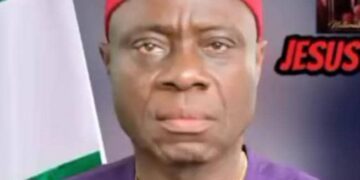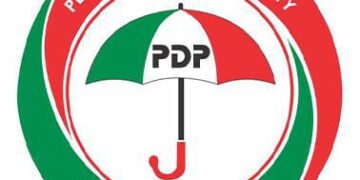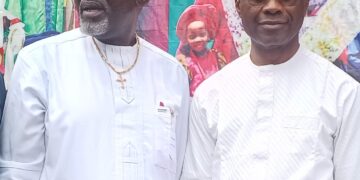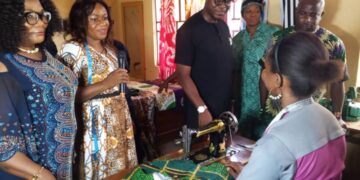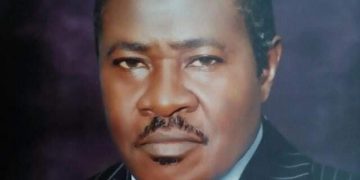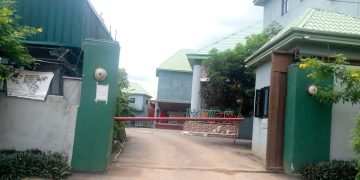. . . Says borrowing without business case is mortgaging the future
The Vice Presidential Candidate of the People’s Democratic Party (PDP), Mr Peter Obi has lamented the rising debt profile of the nation owing to what he described as excessive and reckless borrowing. Obi who spoke at The Morning Show on Arise Television on Wednesday, March 11, 2020, said the current debt position of the country called for a serious concern.
Obi explained that financial borrowing was not entirely bad if the borrowed funds were put into productive use. He said however that borrowing without a business case or convincing business plans only meant mortgaging the future.
“Everybody knows my stand on borrowing. I am against reckless borrowing and borrowing for consumption. If you must borrow, you must be able to convincingly prove to us the business case of the borrowing, otherwise you are mortgaging the future”, Obi said.
“All the funds that have been borrowed for long in the country have not impacted positively on the growth of Nigeria’s economy, meaning that they were reckless and meant for consumption. Kenya is borrowing. Ghana is borrowing. Most countries do borrow. But what are the funds used for? In 2010, Ghana’s Gross Domestic Product stood at 32 billion US Dollars, but as at 2019 their GDP had grown to 64.5 billion US Dollars”, Obi noted.
Obi warned that excessive financial borrowing would hit the country hard if it was not curtailed. He added that the country’s borrowed funds from 2008 till date stood at almost 100 billion US Dollars, which represented a quarter of the country’s Gross Domestic Product (GDP). He said that it was not enough “to tell us that you will use the borrowed funds for this or that without presenting any business case for such funds”.
“No country borrows a quarter of its GDP without showing tangible investments or projects into which the borrowed funds were employed”, Obi said.
Obi further bemoaned the significant decrease in Nigeria’s Foreign Direct Investment (FDI) which he said was as a result of the high level of insecurity in the country. He noted that the alarming level of insecurity in the country also discouraged local investors from investing into Nigeria’s economy which was negatively affecting the economy.
















